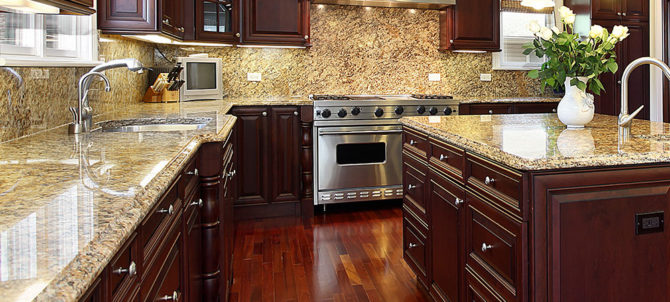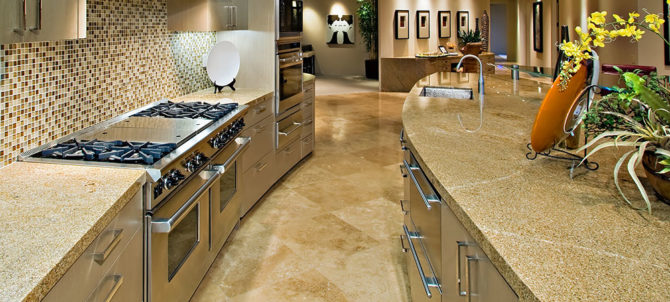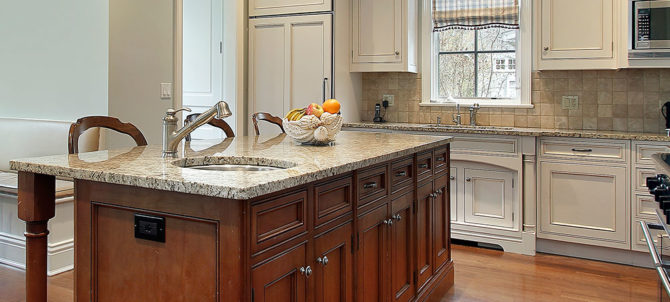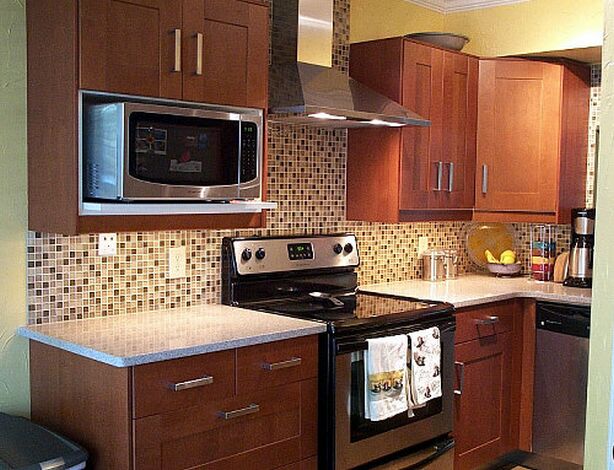
If you recently installed granite counters, you know the price they come at—they are not cheap, and you wouldn’t want to reinstall them after a few days or months, would you?
To ensure that the countertops last for as long as possible, avoid doing things that can harm them. Are you wondering what should you avoid with granite countertops? Well, there are plenty of things you should avoid, with the common ones being:
Sitting on the countertops.
The countertops appear tough and solid that when you are in the kitchen preparing the meals or having a friend over, you sit on the countertops. Others step on the countertops when reaching the top shelf or replacing the bulb. This is wrong.
While the countertops look strong, they have small fissures that can crack when you place a lot of weight on them, so you should avoid sitting or stepping on your countertops. You also should avoid placing heavy items such as large water bottles on the countertops as these too can lead to the countertops cracking.
To avoid sitting on the countertops, always have a chair in the kitchen to sit on. You also should have a stool or small ladder to step on when you are looking to replace the bulb or reach the top shelf.
Leaving spills on the surfaces
Since you regularly seal granite counters, you don’t have to worry about spills as the water can’t get into the deeper granite layers, right? Wrong!
Even with sealing, the water and other liquid spills can penetrate deeper granite layers when you allow them to sit on the countertops for too long.
So regardless of how often or the quality of sealer you use, ensure that you remove the spills as soon as they happen. Never leave them on the surface for too long.
Cutting materials directly on the surfaces
The same way people stand or sit on the countertops as they appear strong and tough, they cut materials directly on the surfaces, which, as you can tell, is wrong. Although, they are made from stone, chopping your meat or vegetables directly on the surfaces puts the surfaces at the risk of cuts, chips, and scratches that can dull them.
There is also the risk of dulling the knives, which increases the risk of lacerations.
To keep your countertops in top shape for a long time, avoid chopping directly on them.
Whether chopping meat or vegetables, ensure that you use a cutting board.
Remember that knives can cause damage even when you leave them laying on the surfaces, so don’t simply leave them on the countertop surface—keep them inside a protective knife block.
Cleaning the countertops using acidic cleaners
When you have stains, it’s only logical to clean them using vinegar and other tough solutions, right? Wrong.
While you might be having clean intentions, your execution is wrong, and it can lead to countertop damage.
Regardless of the stains on your surfaces, steer clear of acidic materials such as vinegar, citrus fruits, ammonia, and others.
The best way to clean the surfaces is to use basic dish soap. If the stains don’t come off, get in touch with an expert to clean the surfaces professionally. The professionals often use cleaners that are tough on the stains but kind on the countertops, so they don’t cause any damage to the countertops.
If the countertop experts attempt to eliminate the stains, but they won’t come off, consider removing the countertops and replacing them with new, stain-free counters.
Storing liquids and toiletries on the counters
In the kitchen, it’s common for homeowners to place cooking oils and other kitchen liquids on the granite kitchen countertops NC. You will find homeowners placing perfumes, lotions, creams, and other products on the bathroom surfaces in the bathroom.
While this might seem harmless, the creams, oils, and lotions can leak from their bottles and spill on the countertops. These products often contain ammonia, mercury, and other materials that can harm your surfaces, so they end up damaging the countertops when they spill.
The situation is even worse if you don’t use the spilling bottle and the harmful chemical stays on the countertops for weeks.
To protect your bathroom and kitchen countertops, don’t place the liquids and toiletries on the countertops. Instead, place them on shelves or decorative trays.


